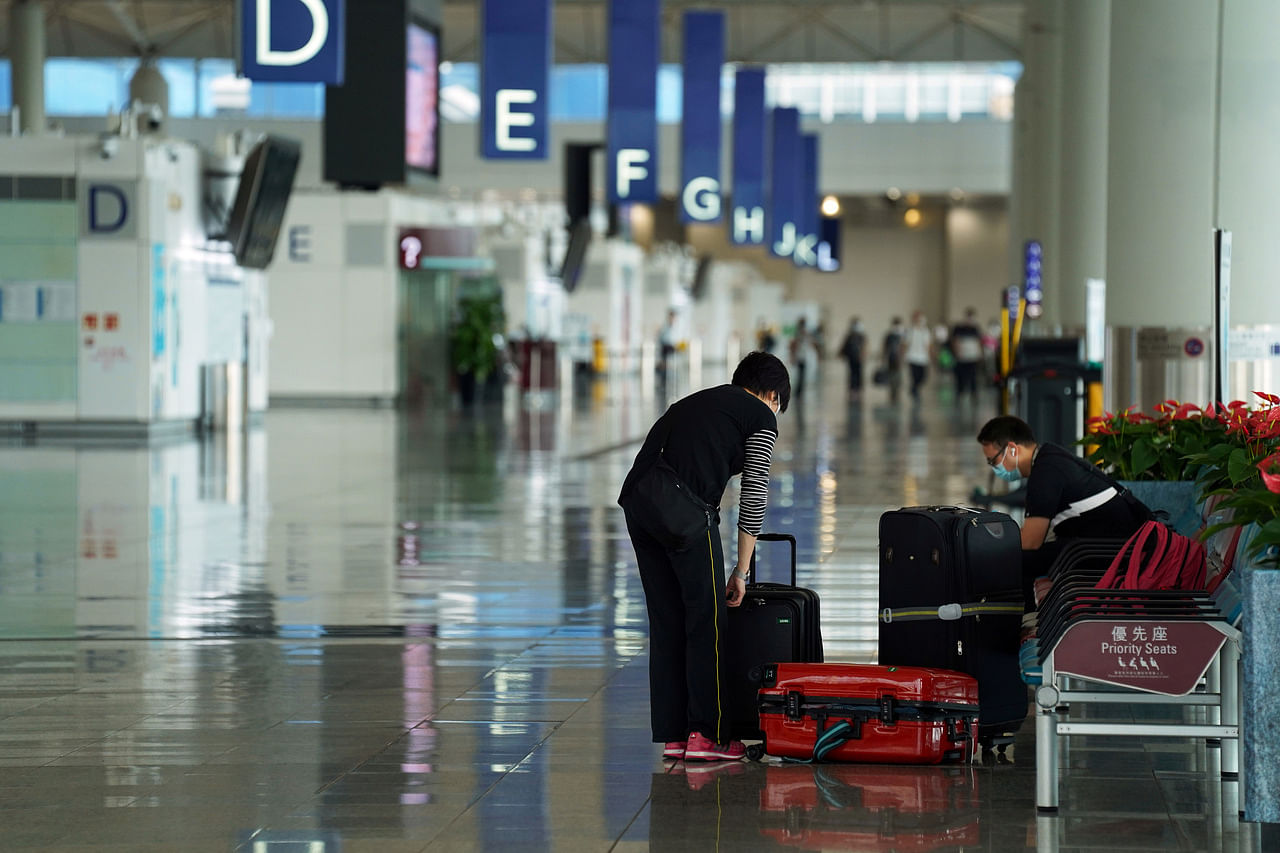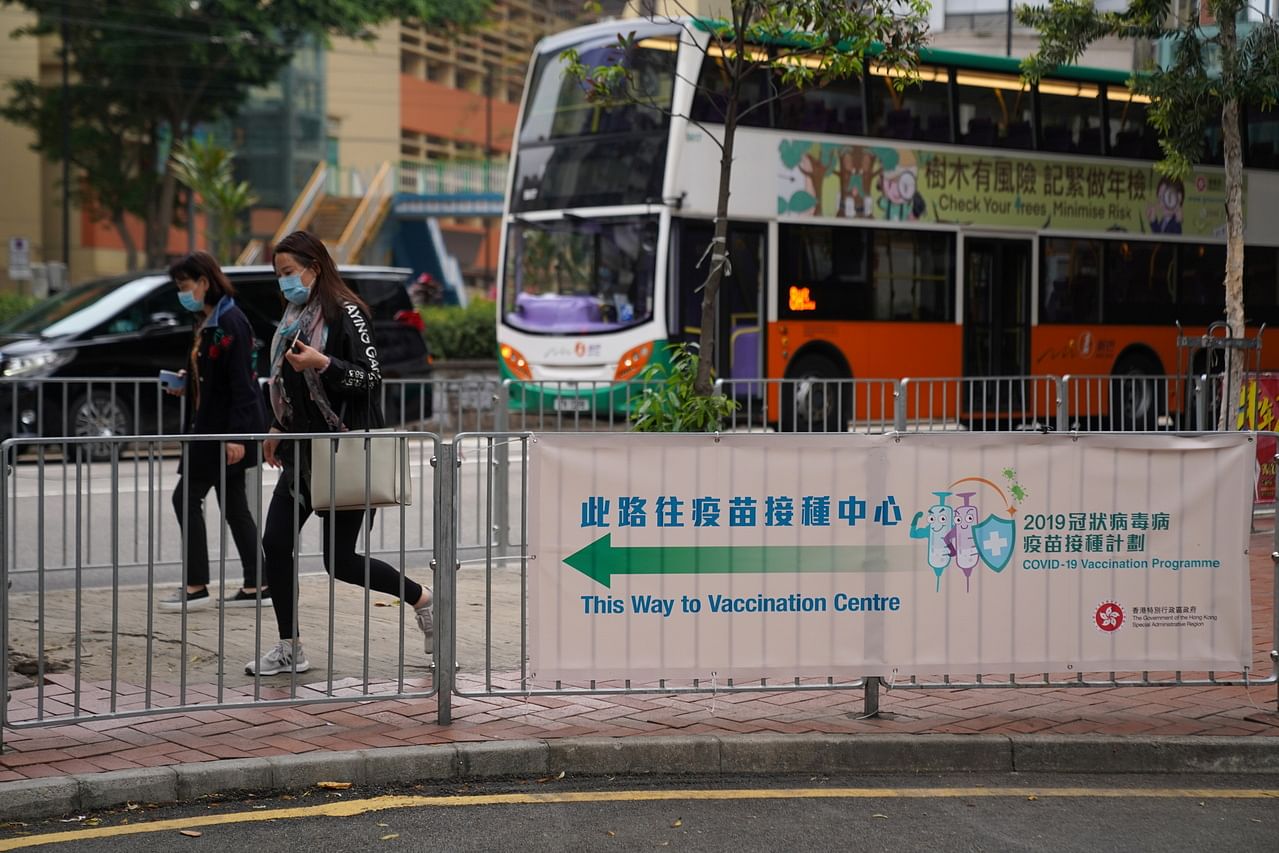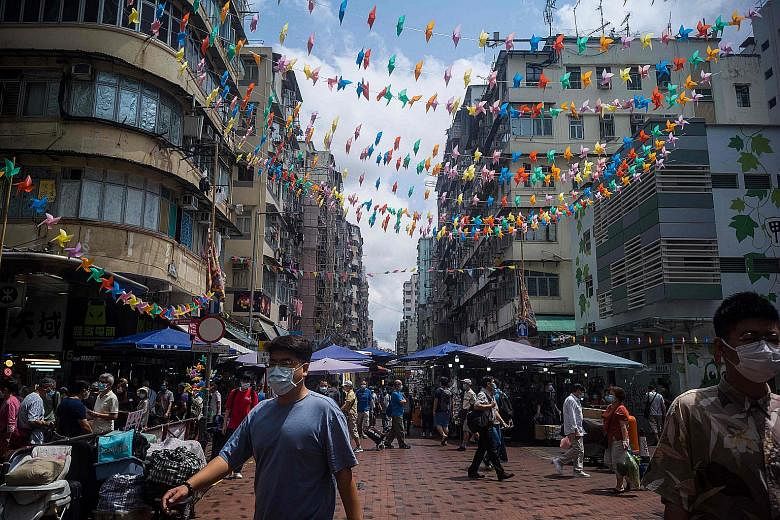HONG KONG - From as early as end-April or early May, fully vaccinated visitors to Hong Kong will have their mandatory quarantine reduced by seven days.
For travellers from low-risk areas including Singapore, Australia and New Zealand who have taken all required doses of the vaccines, their mandatory quarantine in designated hotels will be seven days instead of 14.
For those from high- and medium-risk areas, they will serve a 14-day quarantine instead of 21 days.
All of these inoculated visitors will have to self-monitor for another seven days after their quarantine, the Hong Kong government said in a release late on Wednesday (April 14).
The 21-day compulsory quarantine requirement for Hong Kong residents who fly back to the city from elsewhere, with the exception of China, remains.
Even as Hong Kong moves to ease quarantine measures for those inoculated, officials have tightened rules for flights to reduce the "risk of importation of mutant strain of the virus from very high-risk places".
Starting from Wednesday, there will be a 14-day ban on any flight that has three or more confirmed cases of Covid-19, instead of the previous threshold of five cases. Cases are detected as passengers arriving in Hong Kong have to undergo mandatory tests.
The ban will also apply if two or more passengers on any two flights of the same airline from the same place to Hong Kong within a seven-day period are found to have the virus. Previously, the threshold was three infected passengers on two consecutive flights.
The 14-day flight ban also applies for another existing criteria that remains unchanged - at least one passenger confirmed to have Covid-19 by arrival test is on the same flight with one other passenger who breaches measures under the cross-boundary traveller laws.
To keep the Covid-19 variant N501Y - discovered in South Africa - out of Hong Kong as much as possible, the government said that any airline that has five confirmed cases or more of this virus variant will be banned from landing in the city for 14 days.
The government will then list the place where the plane took off from as an extremely high-risk area, which will restrict persons who have stayed in that place for more than two hours from boarding passenger flights to Hong Kong for 14 days.
The statement said the move is to prevent persons from the relevant place from arriving in Hong Kong via transit.
But once the 14-day period is over and the area is downgraded from "extremely high-risk" to "very high-risk", visitors can enter Hong Kong again, and will have to undergo the 21-day quarantine.

The development comes as Singapore and Hong Kong are finalising the details of the travel bubble where passengers will have to get tested to take the direct flights.
Under the agreement, these visitors will not have to serve any quarantine.
In March, Hong Kong proposed that passengers intending to take the Singapore-Hong Kong bubble flights be vaccinated prior to their trip.
This week, Chief Executive Carrie Lam said Hong Kong will impose the vaccination requirement on people flying out of the city on the travel bubble flights.
Hong Kong's daily infections have tapered to low single digits, with most of the cases in recent weeks imported.
There have been more than 11,600 confirmed cases and 209 deaths so far.
Hong Kong officials, troubled with the sluggish vaccination rate, are now aggressively pushing for residents to get the jabs by lowering the age limit.
From next Friday, residents aged 16 to 29 can book appointments. Currently, only people aged 30 and above can go for the jabs.
Those aged 18 or above can choose to take either the German-made Pfizer-BioNTech or Chinese Sinovac jabs.
Those aged 16 and 17 will have to show parental consent and can only receive the Pfizer jabs.

"The expansion will cover an additional 1.08 million Hong Kong citizens, with the city's vaccination programme now covering a total of 6.5 million people, equivalent to 88 per cent of Hong Kong's total population," Secretary for Civil Service Patrick Nip, who helms the voluntary inoculation drive, said on Thursday.
He said vaccination centres offering the Pfizer vaccines will stop operating by end September and that people who want this vaccine need to get their first shots by end of August. These jabs expire after four months.
More than 950,000 doses of vaccines have been administered to a population of 7.5 million.
To incentivise inoculation, Mrs Lam on Monday said the government will ease social distancing measures for those who are fully vaccinated.
The move to extend dine-in services and triple the cap on number of patrons per table at an eatery where staff and customers have taken their jabs, also comes as pressure mounts on people's livelihoods and for officials to revive the economy.
Existing measures, including mask-wearing and public gatherings of no more than four, will last till April 28.












